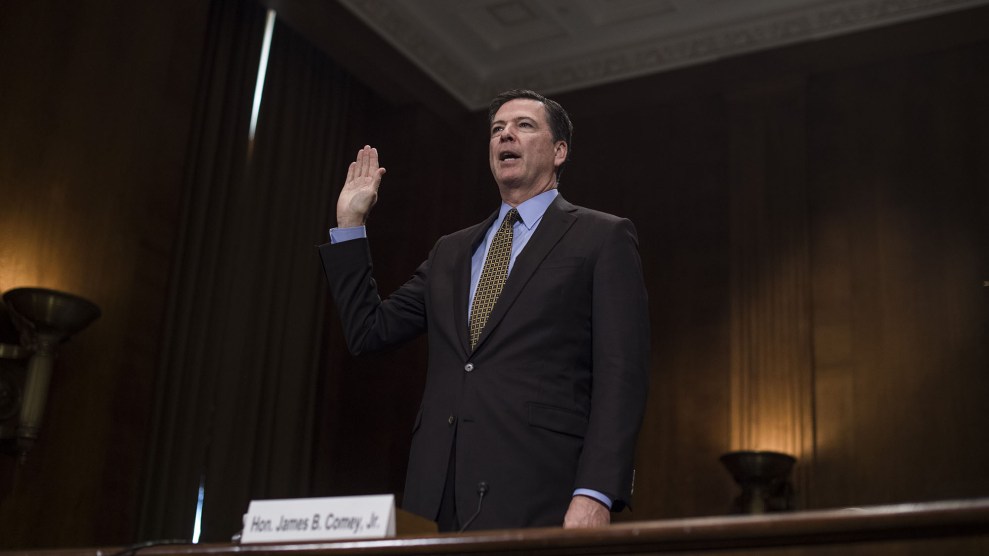
Tom Williams/CQ Roll Call/Newscom via ZUMA
FBI Director James Comey said Wednesday that he had no good options when it came to deciding whether to notify Congress 11 days before the presidential election that the bureau was reopening its investigation into Hillary Clinton’s email practices.
Comey famously chose to send a letter to lawmakers on October 28, 2016, disclosing the new investigation. That letter was promptly made public by Republicans and, according to experts, it likely had a significant effect on the outcome of the race—despite the fact that the renewed probe turned up nothing incriminating. In his testimony Wednesday, Comey said that even though he felt sick at the thought that his actions might have affected the election, he would make the same choice again.
“This was terrible,” he told Sen. Dianne Feinstein (D-Calif.). “It makes me mildly nauseous to think that we might have had some impact on the election. But honestly, it wouldn’t change the decision.”
Comey said he had to make a choice between speaking or concealing the fact that he was reopening the investigation. “Even in hindsight—and this has been one of the world’s most painful experiences—I would make the same decision,” he said. “I would not conceal that.”
Comey also emphasized that he “didn’t make a public announcement” about the renewed investigation but rather sent a “private letter” to the leaders of the congressional oversight committees. That statement drew laughter from Feinstein.
“On the letter, it was just a matter of minutes before the world knew about it,” Feinstein said.
FBI Director Comey: “It makes me mildly nauseous to think that we might have had some impact” on election; says he wouldn’t change decision. pic.twitter.com/966VZoydLI
— ABC News (@ABC) May 3, 2017












